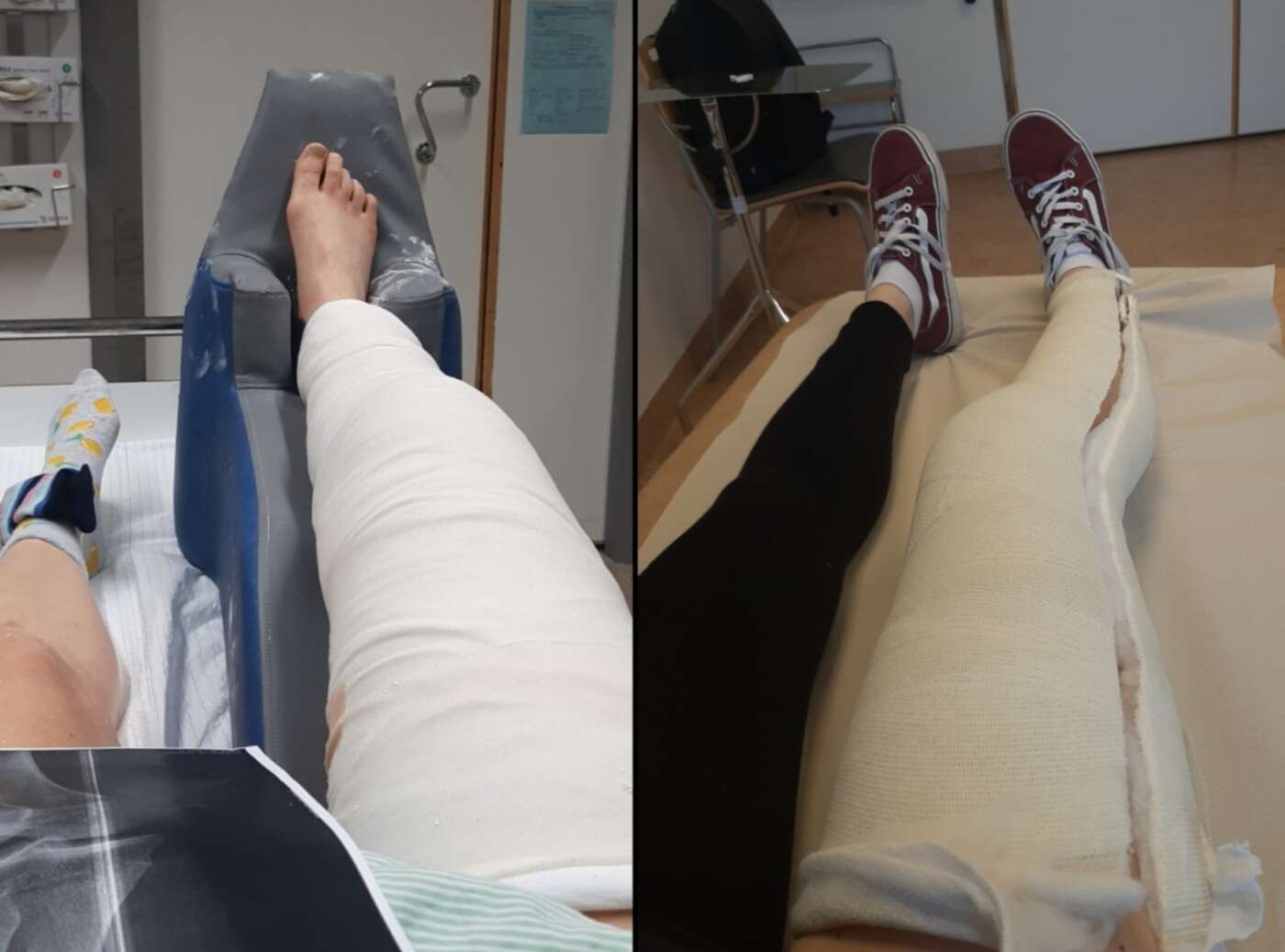Sjukhus
In this report I want to share some facts and my personal experiences about the Swedish health care system.
The word of today’s post is “sjukhus”, what is Swedish for hospital and could be directly translated to “sick house”. I chose this phrase because as I experienced here in Sweden, these hospitals are the central point for health care. Even more than in other countries, they often contain all different kinds of doctors, emergency rooms, specialists, therapists, pharmacies, medical supply stores with fittings and much more. Every bigger town has a Sjukhus and some I wouldn`t even describe as an hospital but more as a medical center.
So, depending on what kind of injury or complaint you have, those local health stations are the best place to get help - or the national health care hotline that will give more information for every individual case. This works the same all over Sweden, even though the health care system in general is decentralized and therefore managed by the different regional councils or municipalities. To still ensure high quality care for everyone, there are principals, information, and standards provided by the central government.
As in many countries there is public health care, but also private ones that are either collaborating with the country council, or have no contract with national health care services at all. But no matter how, health insurance is universal and generally of high quality with good organization.
Talking about financing, patient fees are only a small part of it. The money comes mostly from taxes or the national government. Through this large funding it is possible to provide comprehensive care and still keep the fees quite low, even though they can vary across the country. Many visits are generally free of charge, for example for the elderly and for children.
But not only provide municipalities help for those mentioned above, but also for people in need of basic health or medical care of the most common discomforts. This is called primary care and is offered at all places. Depending on the individual case, after the first assessment doctors decide if further prescription or specialists are needed.
When it comes to those specialized medical measures, people can easily get access through primary care, however they can also contact a specialist right away. In general the system is quite organized and cases are prioritized well, so that compared to other countries waiting times are mostly bearable. For highly specialized care only a few clinics get authorized to provide it, in order to keep the level high. But to insure the best treatment possible Sweden also works hand in hand with other countries.
In my case, I followed the directions of my Swedish co-workers and experienced exactly the above mentioned. After my skiing accident on a Sunday I called the Swedish health care hotline to get first information about how to proceed in my individual case. Since my knee injury was not life threatening I was told to go to the local physiotherapist the next day during their drop-in-hour. There my knee was checked and because it seemed like I fractured my bone I was send to get an x-ray immediately. After just a short waiting time I got to see a doctor who gave me a first treatment but also a second appointment for a special x-ray, just in case. So, the next day I came back and was then given a cast in order to keep my leg still for two weeks.
After exactly those two weeks I got a new appointment to check the healing process. Different to any doctor`s experiences I`ve ever had, free bus tickets to and back home from the hospital were sent to me before my appointment. Since I was so surprised by that, I asked around and it`s actually common in Sweden to get this opportunity of free and easy travel. So, next to not having to worry about how to schedule or get to my appointment, also the process of doing another x-ray, getting my cast off, seeing the doctor, and being brought to another specialist to fit my individual orthosis went super smoothly. In only a few hours I was done and in addition to this quick and nicely organized procedure everyone was really kind and I had many lovely talks with nurses, doctors, and other workers at the hospital.
So far, that is all I can say about personal experiences with the Swedish health care system, but I also heard many similar stories from other people. Of course it can happen, just as in many other countries, that waiting times especially for check-ups can be quite long when you don`t have serious health issues. But I guess that is the result of a lack of stuff what is pretty common in many fields. But overall I was positively surprised by the system and my experience with it. Soon I can give another, more personal update how my treatment is continued. Until then, stay safe and I hope no one of you needs to make experiences with any health care system at all!



 Duitsland
Duitsland